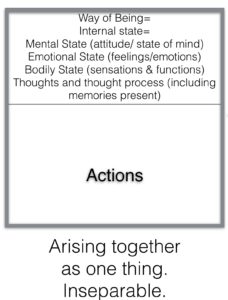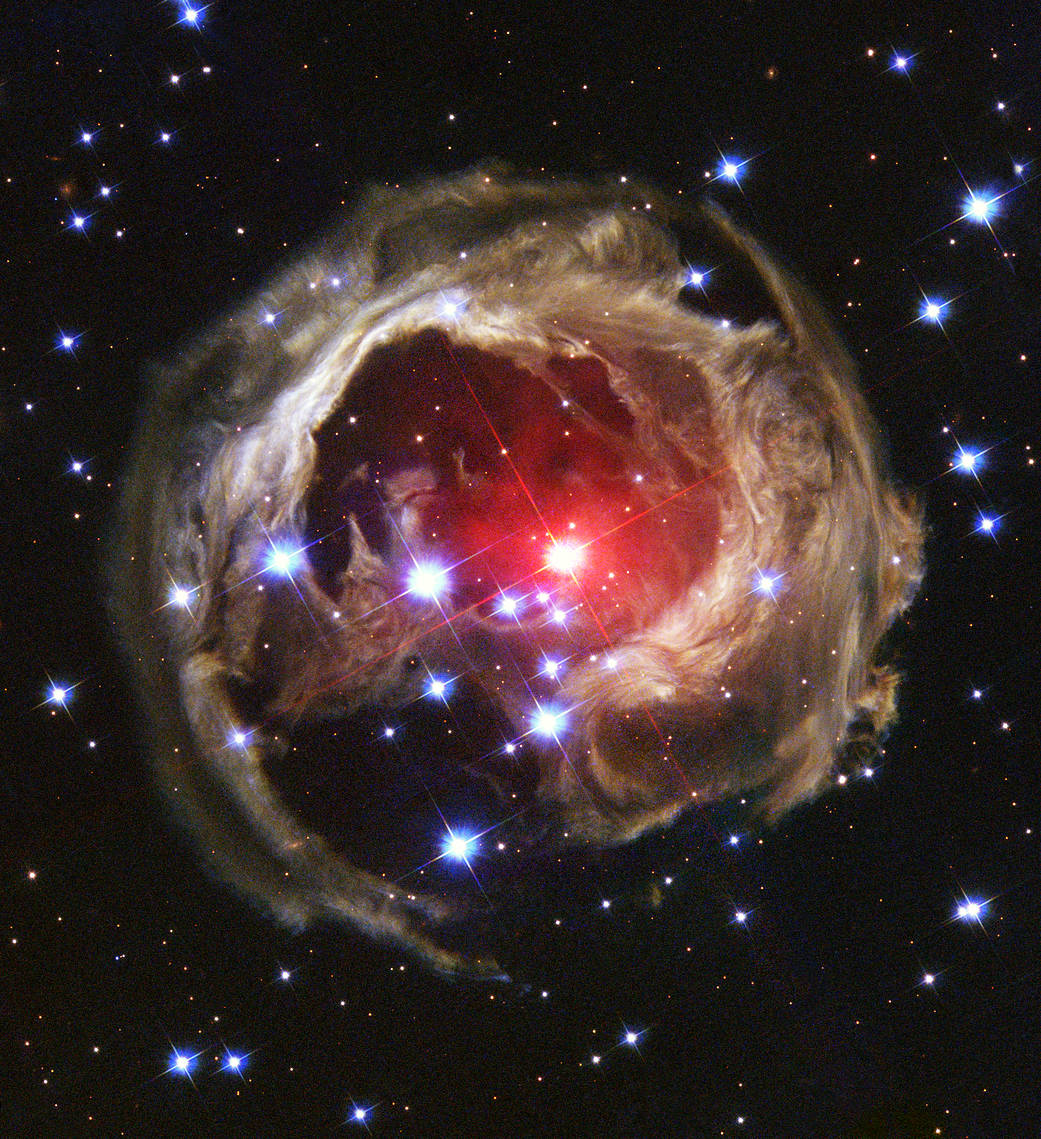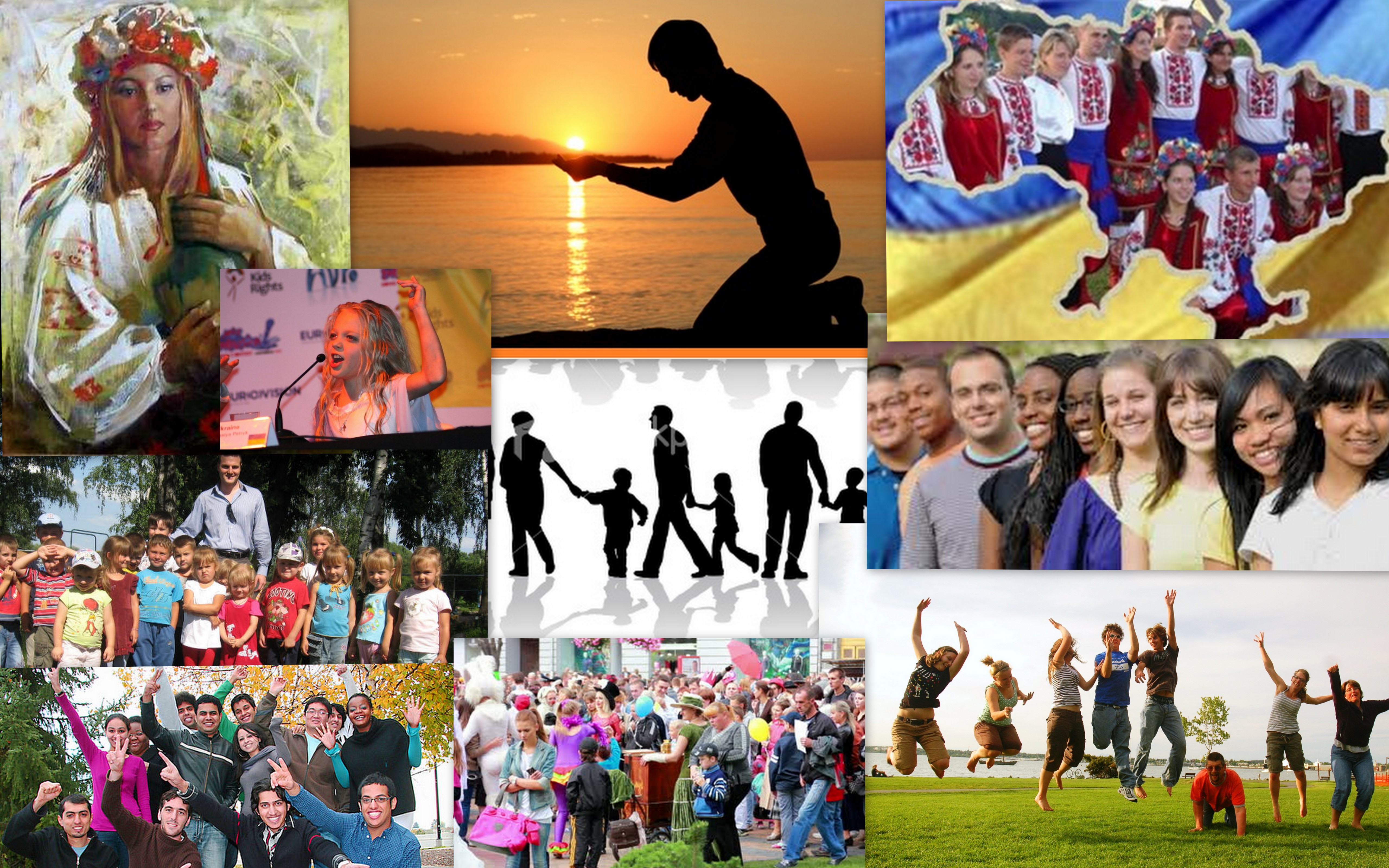
Erhard et al (2022) claims the following:
Our Way of Being and our Way of Acting come together as though one thing. See diagram…
The Sole Cause of Action & Consciousness is a universally accepted scientific fact that all of your conscious experience (for example, deciding to act), and the physical actions you actually take, are both caused by networks of activated patterns of neurons in your brain, and nothing else. In short, your brain is the sole cause of both your consciousness (what you are aware of) and your actions.
Neuroscience research has shown that the neural patterns in our brain that give rise to our Way of Being and the neural patterns in our brain that give rise to our Actions are always networked together. (Clancey, 1993, p.5, and Hawkins, 2004, p.157)
In an article in Scientific American former Caltech Professor of Neuroscience and current President of the Allen Brain Institute, Christof Koch (2012), talks about the extensive experiments which established the fact that what we believe is a so-called voluntary action is already set in your brain before you consciously decide to take that action: “The results told an unambiguous story, which was bolstered by later experiments. The beginning of the readiness potential precedes the conscious decision to move by at least half a second and often by much longer. The brain acts before the mind decides! This discovery was a complete reversal of the deeply held intuition of mental causation.”
Benjamin Libet, (1985, 1993): “In short, the brain has already “decided” to act before you do.”
Nature (Smith 2011): “..the team discovered that a pattern of brain activity seemed to predict that decision by as many as seven seconds. Long before the subjects were even aware of making a choice, it seems, their brains had already decided.”
Nature Neuroscience, “Unconscious Determinants of Free Decisions in the Human Brain” by Siong Soon, Brass, Heinze, and Haynes (2008, p.543-5): “There has been a long controversy as to whether subjectively ‘free’ decisions are determined by brain activity ahead of time. We found that the outcome of a decision can be encoded in brain activity of prefrontal and parietal cortex up to 10 seconds before it [the decision to act] enters awareness. [It] specifically encodes how a subject is going to decide.”
Eric Kandel (Rose 2010): “.. the physiological response to a threat occurs before you are aware of any emotion (like being frightened). This is more evidence contrary to our idea that our actions (the body preparing for fight or flight) are caused by what is going on with us internally.”
NEW CONFLICTING EVIDENCE
Bredikhin (2023) disputes the link between readiness potential and conscious decision-making previously established by Benjamin Libet, (1985, 1993) They found that experimental procedures could impact the timing of conscious intention awareness and the researchers suggest that the Libet paradigm may not be suitable for assessing the concept of free will.
However, I assert that if we examine our lives we can see that we act, then later become aware of what we say was our ‘decision’ to act. If our decisions-to-act came before our de facto actions, we would never eat that piece of chocolate or whatever else we ‘decided’ not to do or the many things we told ourselves we would do and just plain didn’t do. So it makes sense that our brain has its own agenda. How can we gain control of those levers and dials is the concern of our work here. We shall put forth evidence and experience to advance our inquiry and ultimately get our hands on the levers and dials of our destiny.
It is pretty obvious that our actions and way of being (feelings, emotions, thoughts) arise together as one thing. We don’t kiss and embrace people we hate. If we are angry we are more like to lash out. And so on. Emotions, feeling and thoughts are consistent with our actions. As we proceed we will discover what is at the source of these actions and way-of-being that arise together.
I will not be getting into the philosophical argument of ‘free will’ or the ‘hard question’. We are after access. It doesn’t matter if we find out we have free will (or we don’t have free will). It makes no difference. We would still keep living the lives we have. We won’t see a news flash that says we have free will (or not) then change our plans for the day. We are discovering what will make a difference in the quality of life today. There are some very powerful experiments that Erhard et al (2022) have designed.
Erhard, Werner and Jensen, Michael C. and Zaffron, Steve and Echeverria, Jeronima, Course Materials for: ‘Being a Leader and the Effective Exercise of Leadership: An Ontological/Phenomenological Model’ (October 4, 2022). Harvard Business School NOM Working Paper No. 09-038, Simon School Working Paper No. 08-03, Barbados Group Working Paper No. 08-02, Available at SSRN: https://ssrn.com/abstract=1263835 or http://dx.doi.org/10.2139/ssrn.1263835

